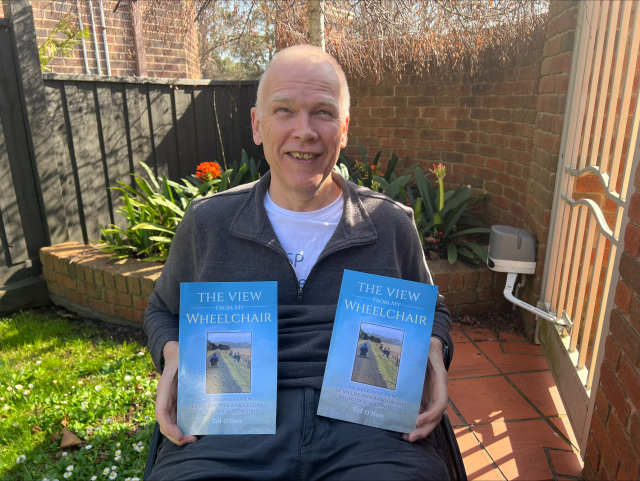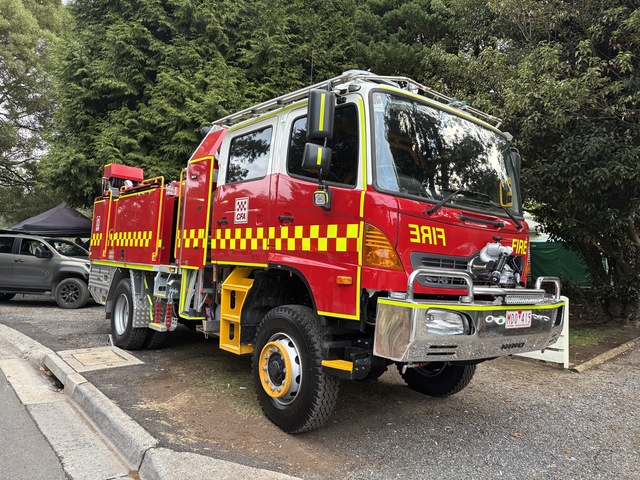For Lysterfield resident Ted O’Hare, not being able to walk without the use of a wheelchair isn’t a major problem – It’s the impact on his family that he worries about.
“I don’t walk anymore, but there’s nothing I can do about that; I really don’t worry about that too much,” O’Hare said.
“The NDIS has been a blessing; but the main concern I have is the effect that I’ve had on my family; I’ve got children, my wife, and ultimately, it does affect them.
“I know my wife notices things that I don’t…like there’s a bunch of steps that you’ve got to go on, and I don’t think about it anymore.”
In 2005, O’Hare was diagnosed with Hereditary Spastic Paraplegia; a progressive neurological condition also experienced by his father.
HSP, as the condition is also known, causes stiffness of legs, and gets worse over time.
“Although my father had the same disease as I, but he got it much later in life – and it was diagnosed or treated as MS (multiple sclerosis) as far as he was involved,” O’Hare said.
“There was some fairly obvious signs that I didn’t have [MS].
“I went to the doctor about catching my feet when I walked…other people had started commenting ‘have you been drinking?’ – It was like eight o’clock in the morning – because I would stagger.”
O’Hare’s new book, published in June this year, tells the story of his like experiences with HSP and his interactions with community members.
The View From My Wheelchair: An Irreverent View of My Life with a Progressive Neurological Condition includes anecdotes of the day-to-day impact of HSP on family, driving, accommodation, aeroplane travel and camping.
It will be launched at the Dandenong Ranges Music Council’s Open Day on Sunday 29 October at Upwey High School.
“What I discuss in the book is more about ‘what are other people’s expectations of somebody in a wheelchair coming into their proximity? Do I have to talk to them? Do they smell? Can they talk?,’” he said.
“One case was a great big four-inch water hose across the footpath; a guy came out and picked it up so I could go underneath it, stuff like that; pushing up the hill and you’ve got people that come up to you and say, ‘you mind if I give you a hand up the hill, or a push?’
“I’ve tried to celebrate that to a fair degree because ultimately, people are great.”
A Norwegian study of more than 2.5 million people, published in 2009, found an HSP prevalence rate of 7.4/100,000 of population.
Extrapolated to the Australian population, this translates to about 1,775 HSPers, with over 500,000 globally, according to the Australian-based HSP Research Foundation.
O’Hare said through his book, he wants “demystify” the wheelchair, raise awareness of HSP, and educate people on the lived experience of someone with the disease outside of academic studies.
“I’d always in the back of my mind thought ‘people don’t know about this and they need to,’” he said.
“That’s part of working around the hospitals and the medical profession as long as I had.
“There’s a support group and a research group in Australia and I’ve been in touch with both of them; and the comments I’ve had back from the support group of other people living with the disease is that they like the book because it’s written from my perspective.”
The View From My Wheelchair: An Irreverent View of My Life with a Progressive Neurological Condition is available online at Xlibris, Amazon, Google Books, Booktopia, Barnes & Noble, Readings and Goodreads.







